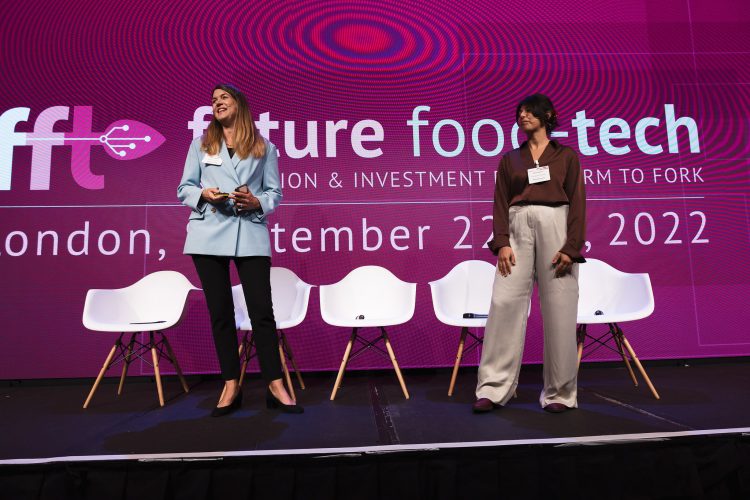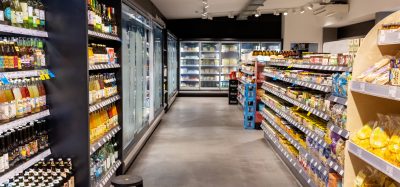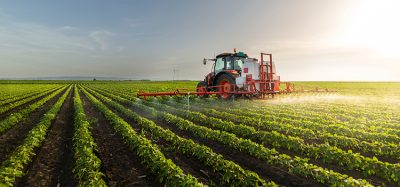Where might the future of food be heading?
- Like
- Digg
- Del
- Tumblr
- VKontakte
- Buffer
- Love This
- Odnoklassniki
- Meneame
- Blogger
- Amazon
- Yahoo Mail
- Gmail
- AOL
- Newsvine
- HackerNews
- Evernote
- MySpace
- Mail.ru
- Viadeo
- Line
- Comments
- Yummly
- SMS
- Viber
- Telegram
- Subscribe
- Skype
- Facebook Messenger
- Kakao
- LiveJournal
- Yammer
- Edgar
- Fintel
- Mix
- Instapaper
- Copy Link
Posted: 27 September 2022 | Grace Galler | No comments yet
With the ever-increasing advancements of technological capabilities, the food industry is expecting some exciting changes in the near future. Here’s what New Food learnt at London’s Future-Food Tech event…


The global population is putting our planet at risk each day by burning fossil fuels and clearing forests. Today, these detrimental habits are contributing about 11 billion metric tonnes of carbon, equivalent to more than 40 billion metric tones of carbon dioxide, to the atmosphere each year.
We have about seven years to change the disastrous direction we’re heading towards and adapt industry production methods to avoid economic as well as environmental and social costs.
New Food attended the Future Food-Tech event in London last week; an event comprised of food brand executives, investors and entrepreneurs from around the globe, discussing large scale solutions in alternative proteins, health and nutrition, to gain an understanding of how we can alter our fate.
Topics such the future of food regulation, infant nutrition, food safety and protein production featured throughout the two days, and speakers were among the well-established and those just getting off the ground.
Protein production
A major category highlighted at the event was protein production, in particular the potential for cultivated meat, which speakers and exhibitors at the event identified as a way forward for sustainable meat production.
Although not yet commercialised (at least in the UK/EU), the speakers on the panel, ‘Routes to Regulation and Market: Moving the Needle on Cultivated Meat and Novel Foods’, expressed hope that regulations will allow lab grown meat to reach consumer shelves in the next few years. However, it may be a while before price-parity is reached between its animal meat counterparts.
Food regulation serves an important purpose, ensuring foods that reach the market are safe to consume and are void of malpractice. However, several companies at the event commented on how difficult it is to get novel foods to market, with many finding the regulation system hard to navigate.
“No company has submitted a dossier for cultured meat yet, because everyone wants a better understanding of the process,” Robert Jones, President of Cellular Agriculture Europe.
“The route to regulation is a zigzag,” Jones added. He contended that regulators needed tools such as cultured meat to meet the Paris Agreement and argued that the focus on novel foods should therefore be centred around lab grown meat not CBD as he claimed it currently is.
Geoff Dance, Head of R&D at Automata questioned whether lessons could be learnt from pharma for good manufacturing processes, but Ira van Eelan, CEO and Co-Founder of KindEarth.Tech disagreed, stating that she did not wish to see guidelines from the pharmaceutical industry replicated in food, and insisted that our industry’s regulations must be developed specifically.
Concluding the panel, Jones said he believed the only way forward is to build a new value chain for cultured meat and that this will “only be possible with collaboration”.
Precision fermentation
Precision fermentation appeared to be the word on everyone’s lips at the conference; and the likes of Planetary, New Culture and Perfect Day emphasised the benefits this technology could offer the dairy sector as it ventures towards becoming a more sustainable industry.
As we have so often heard – the negative impacts of methane from cattle was a key argument for precision fermentation.
Christian Poppe, Director of Global Public Affairs and Sustainability at Formo explained to New Food: “We develop cow proteins without the cow. [They are] animal-free proteins that are bioidentical to cow protein.
“We have around 45 researchers now from strain engineers to molecular biologists, who develop or find a sequence [from the cow DNA] then ‘programme’ microorganisms with this information. It could be a fungi, or a yeast microorganism. That microorganism turns into a ‘tiny protein manufacturer’ as it ferments the microorganisms.”
Consumers are looking for dairy alternatives which taste the same as their traditional counterpart and we’re seeing a rise trend towards alternatives due to climate concerns. However, all is not lost for traditional dairy. There is substantial market of consumers looking to purchase milk and dairy products that taste good and are sustainable – if precision fermented dairy makes its way onto retail shelves, the future may not be oat or soy, but dairy products made from cow DNA.
How can this be more sustainable? Simple – because precision fermentation doesn’t rely on hundreds of cows; therefore, not only are methane emissions lowered, but so is animal feed and land use. In the most basic sense, scientists will be able to make bioidentical dairy products like cheese and milk in a bioreactor.
The future consumer
In an exciting talk led by Rachel Konrad, Chief Brand Officer at The Production Board, with speakers from Green Chef, Uber Eats and Mars Inc., food trends, consumer buying behaviours and generational eating habits were discussed.
According to the panellists, there are two post-pandemic trends running concurrently; many people are keen to explore new food with the convenience of take-away outlets, and are also enjoying cooking at home for their families.
Moreover, consumers are asking companies for full transparency when purchasing food products, with many asking questions that companies have never had to consider before, such as, ‘what are the environmental impacts of product production?’ This has resulted in a global drive to rethink product sourcing, emissions, meat usage and packaging.
A key driver for purchasing food products has always been taste but the need for products to also be sustainable is now clear.
With consumers, expecting their food to be both delicious and environmentally friendly, now is not a good time for companies to put their foot on the break. Now is the time for innovation.
Related topics
Cultured Meat, Environment, Food Safety, Food Security, Food Waste, Genetic modification (GMO), Health & Nutrition, Labelling, Natural, Plant based, Processing, Product Development, Regulation & Legislation, Research & development, retail, Supermarket, Supply chain, Sustainability, Technology & Innovation, Traceability, Trade & Economy, World Food
Related organisations
Automata, Cellular Agriculture Europe, Formo, Green Chef, KindEarth.Tech, Mars Inc., New Culture, Perfect Day, Planetary, The Production Board, Uber Eats
Related regions
Related people
Christian Poppe, Geoff Dance, Ira van Eelan, Rachel Konrad, Robert Jones








